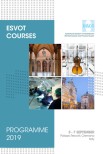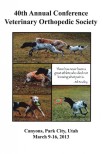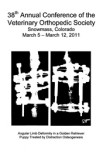ReGeneraTing Agents (RGTA) are nanopolysaccharides engineered to mimic heparan sulfates and have been shown to stimulate tissue repair and healing (skin, cornea, gingival, and muscle) in several animal models of injury and in human medicine. A preliminary study, monocentric and uncontrolled, was conducted to evaluate the efficacy of a dedicated RGTA (named Equitend) in improving the healing quality of the injured tendon after a single and ultrasound-guided intralesional injection.
Improvement of ultrasonographic appearance of tendinous or ligamentous lesion was documented at least over 4 months in Equitend-treated horses and was further supported by another study on superficial digital flexor tendonitis, in 51 horses (16 French Standardbred trotters (ST), 13 Thoroughbreds (TB), and 22 eventers). Long-term follow-up of these horses showed high rates of return to racing, with 95% of eventers, 87.5% of French ST, and 77% of TB. The mean duration before the first race or competition was 6.6 and 7.4 months for ST and eventers, respectively. The group of 16 treated ST was then compared with a matched control group, showing that the Equitend-treated group was able to return to a higher level of earning after lesion (74% vs. 15% in the control group). Furthermore, the Equitend-treated group was back in racing 2.4 months earlier than the control group.









